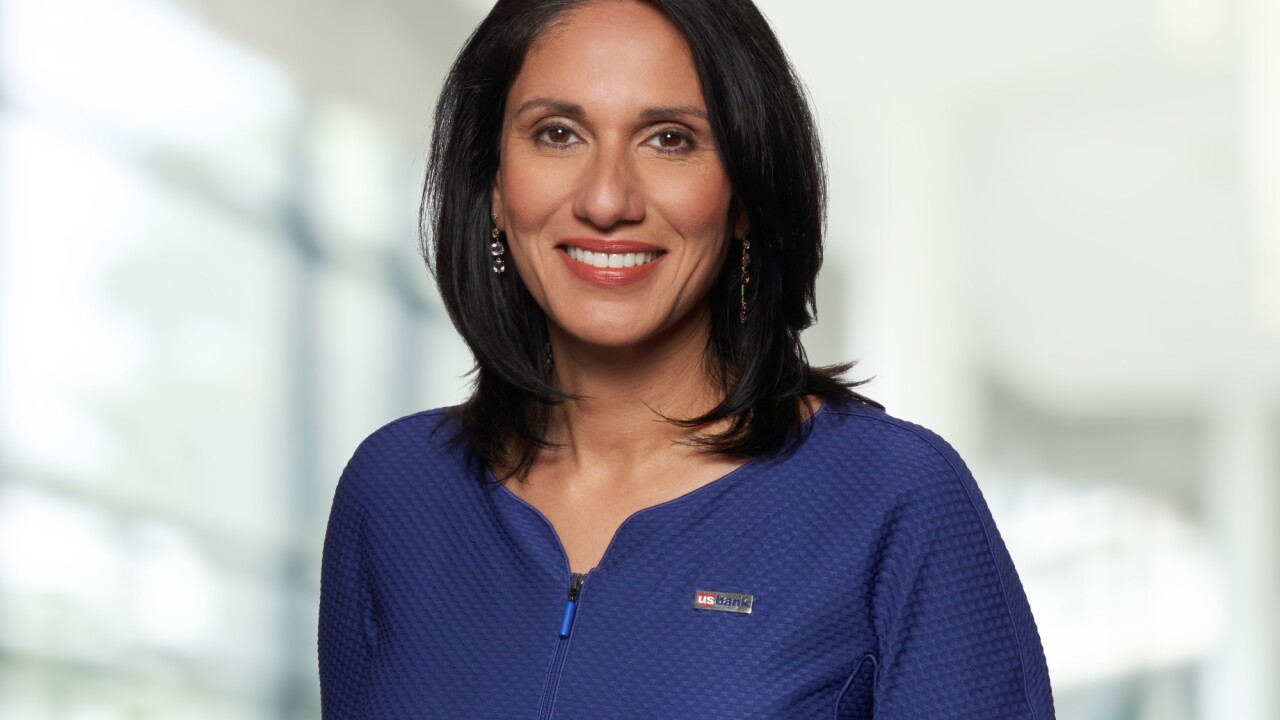U.S. Bancorp
U.S. Bancorp
U.S. Bancorp with nearly 70000 employees and $554 billion in assets as of December 31 2020 is the parent company of U.S. Bank National Association the fifth-largest commercial bank in the United States. The Minneapolis-based bank blends its relationship teams branches and ATM network with digital tools that allow customers to bank when where and how they prefer.
-
The Minneapolis-based company will return to its former governance structure when it installs CEO Gunjan Kedia as board chair. Andy Cecere had served as chair during his tenure as the company's chief executive, and then became executive chair when he stepped down as CEO last year.
January 28 -
CEO Gunjan Kedia joined nearly 70 chief executives of Minnesota-based companies in calling for "an immediate de-escalation of tensions" in Minneapolis, where a second resident was fatally shot by federal immigration agents on Saturday.
January 26 -
The Minneapolis-based regional saw its fourth-quarter profits jump 23%. Consumer deposits bumped up, while operating expenses remained muted.
January 20 -
The new developer assistant helps corporate clients and partners find and integrate the bank's APIs into their programs and websites.
January 15 -
The Minneapolis-based bank has collaborated with BTIG since 2014. The investment bank's leadership team will join U.S. Bancorp following the deal's expected completion in the second quarter.
January 13 -
The bank is a step closer to having its own U.S. dollar-pegged cryptocurrency. It could become the first major financial institution to issue a stablecoin.
November 26 -
American Banker's 2025 Small Business Banking conference yielded lessons about the need for speed, simplicity and safety in small-business lending. Other key takeaways included the significance of digital payment options and the importance of continuing to process SBA loan requests during the government shutdown.
October 29 -
In an environment of persistent economic unease, banks have a unique opportunity to help small businesses, Sekou Kaalund, U.S. Bank's head of branch and small business banking, said at American Banker's 2025 Small Business Banking conference.
October 28 -
The superregional bank ranked at the top of surveys from Javelin Strategy and Keynova Group on mobile banking features for the second consecutive year.
October 6 -
The superregional bank, which pulled the plug on bitcoin custody services in 2022, is reintroducing those services following the demise of an unfavorable SEC rule.
September 3 -
The lawsuit argues that a state law from 1967 concerning wiretapping also applies to internet tracking. Similar arguments in related cases have had mixed success.
August 20 -
Srini Nallasivan, who was born in India, claims in a lawsuit that the Minneapolis-based bank harassed and fired him in order to replace him with a white executive. U.S. Bank denies the accusations.
August 18 -
The Minneapolis-based bank reported solid commercial growth during the second quarter, with the momentum carrying over into July.
July 17 -
The Minneapolis-based bank worked with WaveBL and ICICI Bank to handle an export shipment with fully digital documents via blockchain technology.
July 15 -
Comerica and U.S. Bank are applying new tools that attempt to take the worry out of real-time transactions made on behalf of third parties. Comerica payments exec Allysun Fleming spoke about the bank's plans.
July 8 -
A pair of surveys released in June indicates that small-business owners have growing confidence, while startup activity and SBA lending are demonstrating continued strength.
July 7 -
Analysts are predicting stronger results this year after a disappointing outcome in 2024.
June 23 -
Paula Comings, the head of currency sales for U.S. Bancorp, said American importers are hearing from their foreign counterparties that they no longer want to be paid in U.S. currency.
June 16 -
As the crypto-friendly GENIUS Act winds its way through Congress, executives at some of the nation's largest banks are showing a newfound enthusiasm for stablecoins.
June 12 -
One day after taking the helm as CEO, Gunjan Kedia was candid about the company's lagging stock price, telling analysts that she is "not happy" with it.
April 16






















